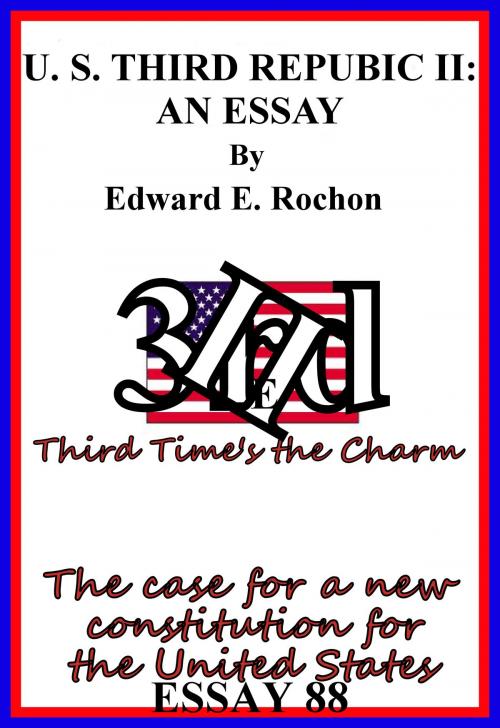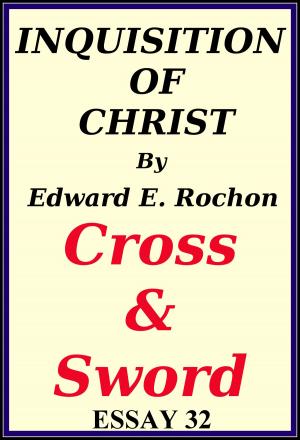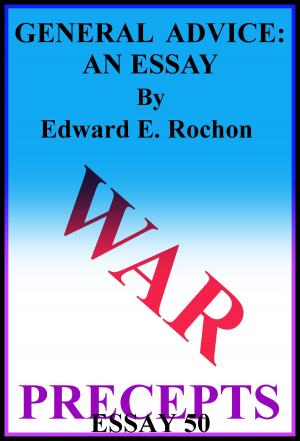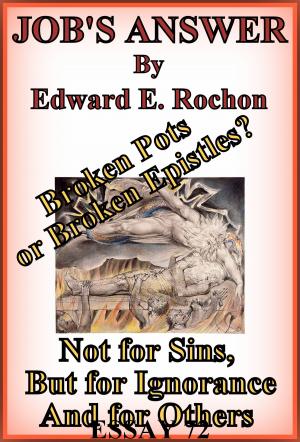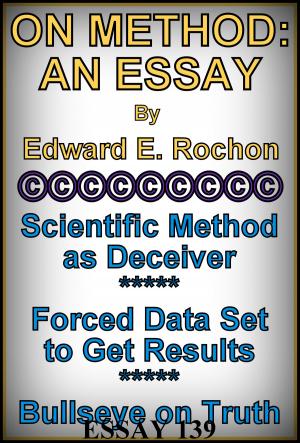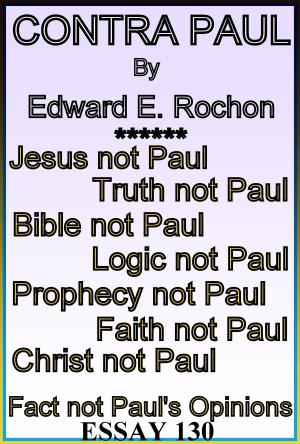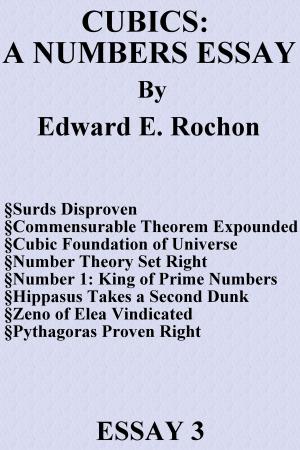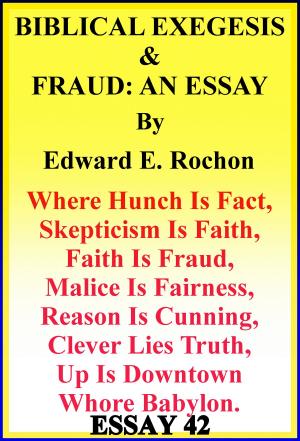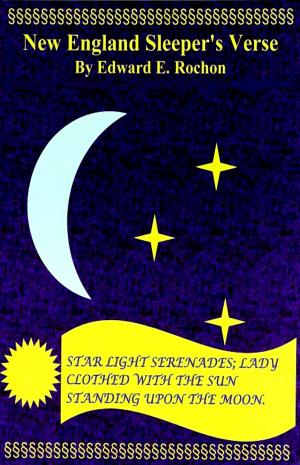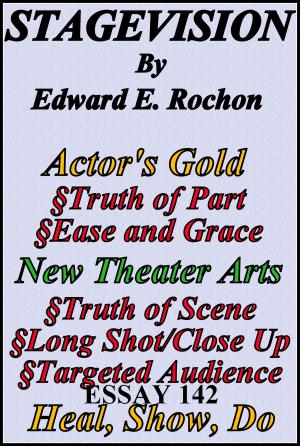| Author: | Edward E. Rochon | ISBN: | 9781311429810 |
| Publisher: | Edward E. Rochon | Publication: | February 7, 2016 |
| Imprint: | Smashwords Edition | Language: | English |
| Author: | Edward E. Rochon |
| ISBN: | 9781311429810 |
| Publisher: | Edward E. Rochon |
| Publication: | February 7, 2016 |
| Imprint: | Smashwords Edition |
| Language: | English |
A preface explains that any form of government like any language has certain advantages as a general rule. To avoid fear of autocratic despotism, that man of sin, and to conform to the current separation of powers current in the US, that purports to inhibit despotism, I offer a second option of reform. Chapter 1 notes that ballot stuffing and electoral fraud undermine democratic government. It also notes that voters are a type of parliament. Why not put the ballot box in a separate branch that only conducts elections. The other three branches would note and bring to the voter attention any ballot stuffing by that branch in its own favor. But conducting elections would be its only job. Chapter 2 notes the original power of the English parliament was largely to have a say in taxation. Congress becomes a revenue raising arm of the government. It must provide funds for all reasonable requests for executive action and the ballot box decides in case of disputes. Chapter 3 lays out the basic powers of the branches. The executive branch makes laws and runs the government, but is stripped of police powers while keeping control of prisons and power to pardon. The congressional branch controls revenue raising and is required to provide all reasonable funds to the executive. Reasonable means oversight and potential rejection and curtailing of funds. The executive may appeal to the people to overrule by plebiscite. The executive has no power over how to raise revenue otherwise. The judicial branch has chief magistrates chosen by the executive with consent of congressional review. Minor magistrates and administrative personnel are chosen by chief magistrates. The executive has power to remove chief magistrates, but Congress, the Judiciary may cry foul and appeal to a plebiscite vote for corruption and impeachment of the executive. The judicial branch controls the police, interprets laws and conducts trials. Congress must meet all reasonable judicial requests for funds with review. Conflicts will be decided by plebiscite. The electoral branch will be chosen and removed only by the electorate, with the other three branches free to cry foul, should that branch rig elections or engage in other malfeasance. The electorate will remove governors of the electoral branch as required. So the object is to have the branches run in parallel to each other. The electorate should take a dim view of too many calls for elections to settle disputes. People should be elected who can get along with each other. Chapter 4 notes that neither Washington, Hamilton, Madison nor Jefferson were enthusiastic about the present constitution for various reasons. It is not a sacred text. We can do better.
A preface explains that any form of government like any language has certain advantages as a general rule. To avoid fear of autocratic despotism, that man of sin, and to conform to the current separation of powers current in the US, that purports to inhibit despotism, I offer a second option of reform. Chapter 1 notes that ballot stuffing and electoral fraud undermine democratic government. It also notes that voters are a type of parliament. Why not put the ballot box in a separate branch that only conducts elections. The other three branches would note and bring to the voter attention any ballot stuffing by that branch in its own favor. But conducting elections would be its only job. Chapter 2 notes the original power of the English parliament was largely to have a say in taxation. Congress becomes a revenue raising arm of the government. It must provide funds for all reasonable requests for executive action and the ballot box decides in case of disputes. Chapter 3 lays out the basic powers of the branches. The executive branch makes laws and runs the government, but is stripped of police powers while keeping control of prisons and power to pardon. The congressional branch controls revenue raising and is required to provide all reasonable funds to the executive. Reasonable means oversight and potential rejection and curtailing of funds. The executive may appeal to the people to overrule by plebiscite. The executive has no power over how to raise revenue otherwise. The judicial branch has chief magistrates chosen by the executive with consent of congressional review. Minor magistrates and administrative personnel are chosen by chief magistrates. The executive has power to remove chief magistrates, but Congress, the Judiciary may cry foul and appeal to a plebiscite vote for corruption and impeachment of the executive. The judicial branch controls the police, interprets laws and conducts trials. Congress must meet all reasonable judicial requests for funds with review. Conflicts will be decided by plebiscite. The electoral branch will be chosen and removed only by the electorate, with the other three branches free to cry foul, should that branch rig elections or engage in other malfeasance. The electorate will remove governors of the electoral branch as required. So the object is to have the branches run in parallel to each other. The electorate should take a dim view of too many calls for elections to settle disputes. People should be elected who can get along with each other. Chapter 4 notes that neither Washington, Hamilton, Madison nor Jefferson were enthusiastic about the present constitution for various reasons. It is not a sacred text. We can do better.
